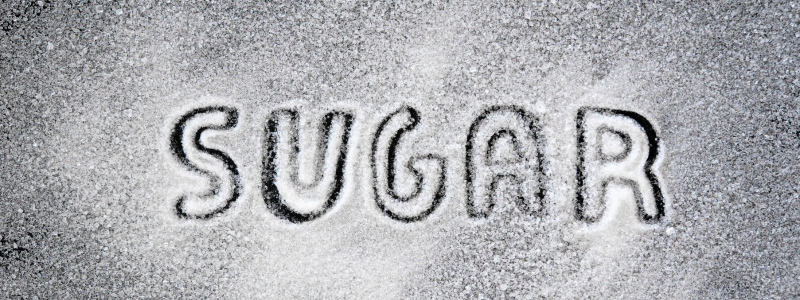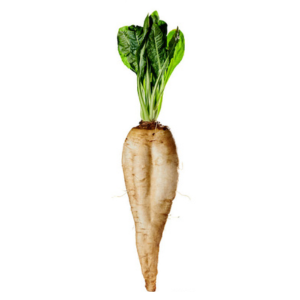Dietary Fiber Delivers "Healthy" Sugar Reduction in Various Formulations
June 3, 2023 | Yana Viardo

Recently, sugar reduction has become one of the top concerns for consumers, health organizations, and government agencies. In 2021, 72 percent of consumers tried to limit or avoid sugar entirely, according to the International Food Information Council (IFIC).
The U.S. government is concerned about the increased levels of sugar consumption from a public health perspective. The updated definition of "healthy" foods by the Food and Drug Administration, the National Salt and Sugar Reduction Initiative, and sugar limits for schools are only some of the steps the government has implemented to draw public attention to the problem of high sugar consumption. And the food industry is working towards meeting this demand. Reduced sugar claims in food and beverage products have grown 13 percent year-over-year between 2020 and 2022.
THE HEALTH IMPACT OF EXCESS SUGAR
Consuming excess sugar can have a negative impact on our health. Sugar can induce hypertension and lead to high triglyceride counts and insulin resistance, which are factors that precede diabetes. Studies have shown that excess sugar consumption has serious negative health benefits from high blood pressure, weight gain, diabetes, and fatty liver disease, all of which are linked to an increased risk of heart disease and stroke.
While it is common to associate excess sugar consumption with confectionary products, many Americans aren't aware of the prevalence of "added sugar" in everyday products such as yogurts, sauces, granolas, cereals, protein bars, soups, bread, dressings, ketchup, and crackers. As a result, the average amount of sugar consumed has tripled worldwide in the past 50 years. Researchers and public health advocates have argued that sugar needs to be regulated.
ACHIEVING "HEALTHY" SUGAR REDUCTION WITH DIETARY FIBER
Dietary fiber is viewed by many as a "healthy" way to reduce sugar in food and beverage products. Fiber and sugar are both common carbohydrates. However, instead of the negative connotation tied to sugar, fiber is often seen as an integral and healthy part of an overall diet and contributes to a well-functioning gut microbiome.
Certain fermentable fibers, such as chicory root fiber (inulin), are dietary fibers, and their prebiotic effect supports good digestive health and immunity. It's a little-known fact that chicory fiber has both nutritional and functional benefits in foods.
Food manufacturers can utilize chicory fiber in reduced sugar formulations while rebalancing the nutritional profile of foods. By adding chicory root fiber (inulin), brands can formulate reduced-sugar, fiber-rich foods while achieving a lower caloric content.
REPLACE CALORIES WITH FIBER
 Chicory root fiber (inulin) has half the caloric content of sugar. It is also one-third the sweetness of sugar and can be used effectively in reduced sugar formulations.
Chicory root fiber (inulin) has half the caloric content of sugar. It is also one-third the sweetness of sugar and can be used effectively in reduced sugar formulations.When we consume food, our body converts the carbohydrates, fats, and proteins from the food into energy, which is measured in calories. Foods that are high in fat and/or sugar tend to provide the most calories per serving. The caloric value of dietary fiber from chicory root is 2 kcal/g compared to 4 kcal/g from other carbohydrates or 9 kcal/g from fats. Dietary fiber provides much fewer calories than other carbohydrates, proteins, or fats, making it a "healthy" solution to reduce sugar and calories in food and beverage products. When combined with other natural sweeteners, such as honey and monk fruit, chicory fiber can provide a suitable alternative to artificial sweeteners, which have been tainted with adverse health effects. Recently, the World Health Organization (WHO) has released new guidelines advising against the use of artificial or non-sugar sweeteners.
DIGESTIVE HEALTH BENEFITS AND THE FIBER GAP
Fiber helps improve our digestive health. Chicory root fiber has a prebiotic effect, promoting the growth of beneficial bacteria in the gut. Considering the digestive system is the largest immune organ in the body, chicory root fiber (inulin), through its prebiotic fiber benefits, helps support a healthy gut and promotes a healthy immune system.
The USDA claims that the average American consumes only 1 cup of fiber-rich food (fruit) daily. The recommended daily amount of fiber falls between 25 and 30 grams, equating to 5-8 portions of fruit. There is a dramatic gap between the two, and fiber-fortified food products can help bridge this gap. Adding chicory root fiber to products helps "bridge the fiber gap" and rebalance the nutritional profile of foods. A serving of 2.5 to 5 grams of fiber will satisfy a good or excellent source of fiber claim in food products.
FUNCTIONAL BENEFITS
Adding soluble fiber to products is a groundbreaking way to keep sugar levels down, improve nutritional and digestive benefits, and increase overall customer satisfaction with the food.
Dietary fiber can be used in a wide variety of applications, making it a versatile solution to reduce sugar and fat across the board. Chicory root fiber is highly soluble and has a high water-binding capacity, helping improve texture in foods where mouthfeel is important.
In dairy products like yogurt and ice cream, adding dietary fiber yields a similar viscosity to full-dairy products and helps attract the health-conscious consumer. It can also be utilized in bakery items, ranging from granola and cereal bars to muffins and cookies. The benefit of adding dietary fiber to these products lies in the functional quality; consumers can now enjoy some of their favorite "sweet treats," knowing that they are consuming less sugar and can benefit their overall health thanks to a high fiber content. Increasing fiber content in food and beverage products with chicory root fiber to foods appeals to today's health-conscious consumer.
A&B Ingredients offers a range of fiber products that provide both nutritional and functional benefits in food and beverage applications. Fibruline™ chicory root fiber is a type of soluble dietary fiber that doesn't contain added sugar. It can be used for its nutritional advantages and help effectively rebalance the nutritional profile of foods. Its slightly sweet taste and creamy texture make it a popular ingredient in low-fat and low-sugar foods, such as yogurt, ice cream, and baked goods. Adding dietary fiber to food and beverage products provides fiber enrichment, sugar, and fat replacement without compromising the taste, texture, or shelf life of the products.
Contact us to learn more or request samples.
How Can We Help?
We are here to help you with development of new and improved food products. Our technical service and sales teams can assist you in choosing the right ingredients best suited for your applications.
Product CatalogContact Us
